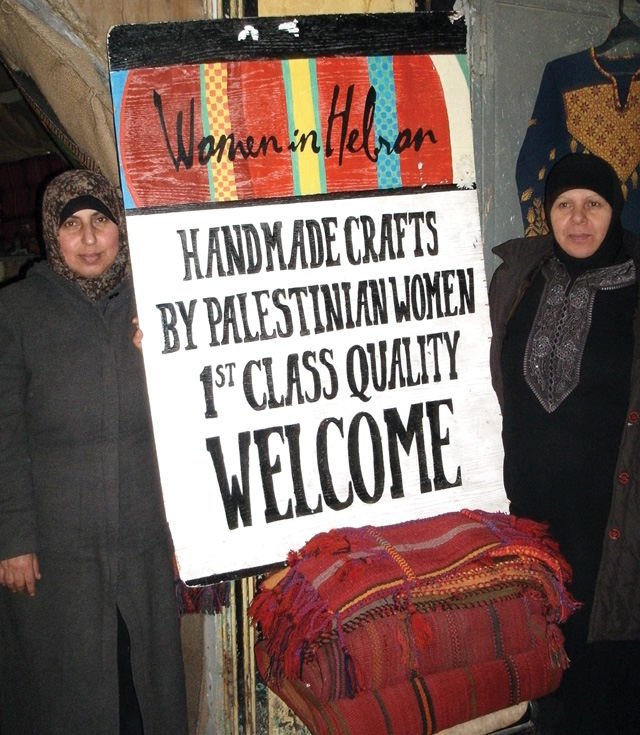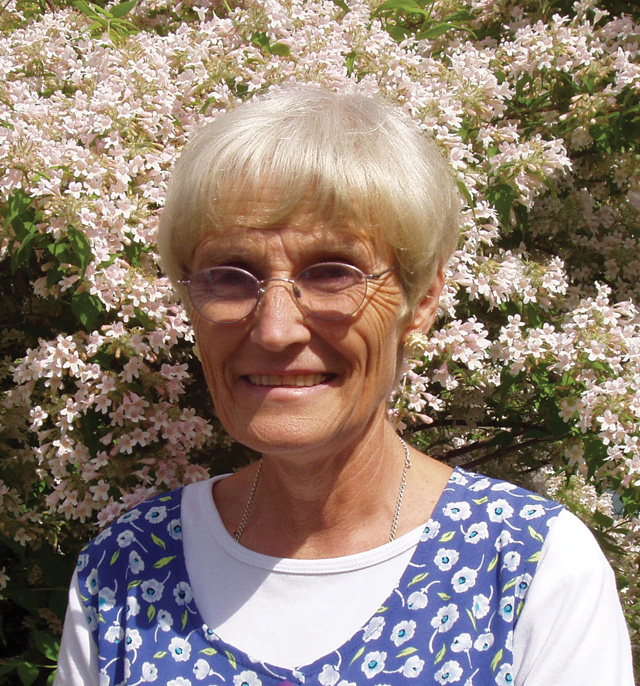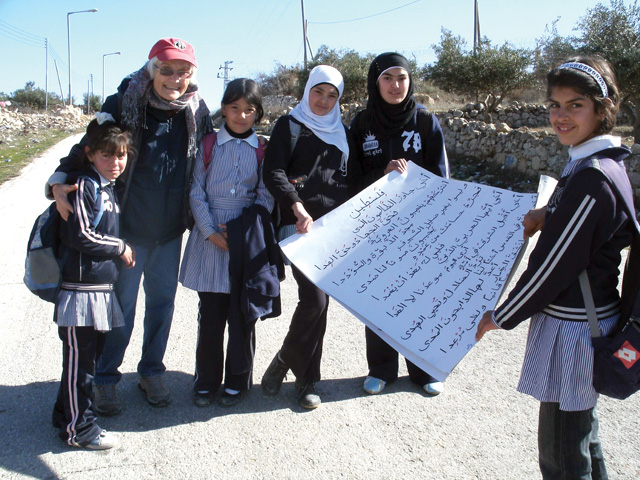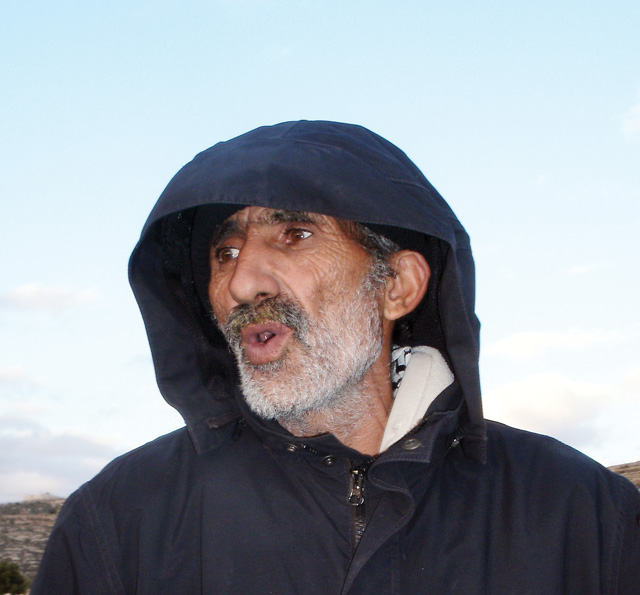Life in Hebron
Building partnerships to transform violence and oppression
By Sr. Rosemary Williamson, O.L.M.
May/June 2012
Return to Table of Contents
Print Article
For some time, even before leaving Nigeria, I had been keenly interested in the work of the Christian Peacemaker Teams (CPT). The mission of CPT is to build partnerships in order to transform violence and oppression. So it was with great anticipation that I joined the CPT in Hebron, the largest city in the West Bank, in November 2011.
I was inspired by the hospitality of the Palestinian people, their love of the land—especially their olive trees, some of which are hundreds of years old—and their deep faith witnessed by their fidelity to times of prayer. I found a people with a profound sense of their relationship with other persons, the Earth and God (Allah).
I want to tell you about two families whose lives touched me deeply.
Jawdi Jaber’s family had lived on their land tilling the soil for generations before most of the land was taken over by the settlement of Kiryat Arba leaving them with only a small remnant. On the night of January 9, 2012, settlers living in Kiryat Arba firebombed the car belonging to the Jaber family and stoned their house. This is part of the fabric of daily violence suffered by Palestinians of all ages. Jawdi’s brother Atta who lives on the hill opposite has had his home destroyed three times. Since 1967, 26,000 Palestinian homes have been demolished in the Occupied Territories because Israel refuses to grant Palestinians building permits and regards any home they build as an illegal structure.
 Nawal and Leila, sisters who opening a cooperative shop selling handicrafts made by Palestinian women in the area.
Nawal and Leila, sisters who opening a cooperative shop selling handicrafts made by Palestinian women in the area.
In the second family, Leila and her sister Nawal opened a cooperative shop to sell handicrafts made by Palestinian women in the surrounding area. One day Leila deliberately kept her son Akram at the shop all day because she knew that youth were throwing stones at Israeli soldiers. In spite of this, when Akram was on his way to buy bread at the end of the day, he was arrested for allegedly taking part in the stone throwing. He was imprisoned for some months with older Palestinian men who eventually convinced him to tell the authorities that he had thrown stones. They believed an admission of guilt would help to reduce his sentencing. Akram did as he was advised and was released, but now his name is on record and he faces a more severe sentence if he is ever accused again in the future. Akram’s older brother was later imprisoned for being caught without a pass for the area where he was working. The Israeli military held him in detention for some months while the family struggled desperately to find the 3,000 shekels (CDN$790) to pay the fine. Finally Akram took his brother’s place at the work site despite the risks involved. Since then his brother has been released.
There are two levels in the judicial system; one for the Palestinians and another for the Israelis. The Israeli military courts govern Palestinians in the occupied West Bank. In this system, Palestinian youth from 12-16 years of age can be held for eight days before a court appearance. During this time no family visits are possible. Youth over 16 are considered adults. On the other hand, Israeli youth are considered minors until the age of 18 and can only be held for 12 hours before an appearance in a civil court, families are allowed to visit and a child social worker is engaged.
My hope for change was strengthened when I met Israelis who recognize the injustice and are resisting non-violently. Members of Ta’ayush, a group comprised of both Palestinians and Israelis, come weekly to the south Hebron hills to support the local communities in their struggle for recognition of their human rights. They pay a price for this kind of support. On one occasion when I was present two of their members were arrested. This was not the first time.
Breaking the Silence is another group of Israelis who support the Palestine struggle. Their members are former soldiers most of whom served in Hebron.
We too are asked to break the silence by becoming more informed about the Occupation which is so unnecessary in this holy land whose people all desire peace and the hope of a better life.
To learn more about the Christian Peacemaker Teams, log on to cpt.org
Return to Table of Contents
Print Article


